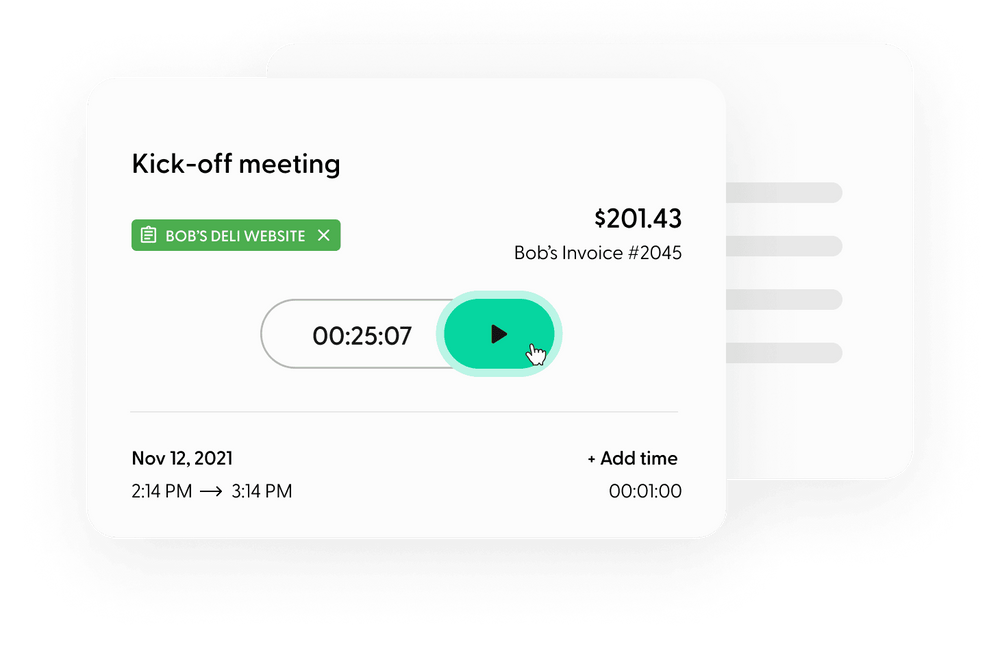Everyone freelances for their own reasons. In my case, one major perk is having variety in each workday. In each day, I could write about interior décor, productivity tips, spinal surgery, and family law.
Handling multiple projects at one time also makes you more profitable in freelancing because you have several income sources. Of course, it’s challenging to manage multiple projects at the same time, so you’re really earning that cash.
A professional project manager isn’t the only one who can master these challenges, but what’s the best method for tracking so many jobs? There’s no singular answer. The trick is finding a combination of tools or strategies that work best for you because every freelancer works differently.
Management Tools for Juggling Multiple Projects
Need a starting point for cultivating your reliable project management process? Try these top options on for size.
Task Management Trackers
When starting any new project, break it up into smaller action items. This lets you track your project’s progress, setting deadlines for each action item to keep you on pace.
Task trackers are perfect for organizing your tasks, along with other aspects of project planning. Add due dates for each task, creating a project schedule that ensures you’ll hit the final deadline.
These trackers have other features that make life easier too. By aligning tasks for specific days, they show how full your schedule is. You can use this to decide how many additional projects you can handle.
Kanban Board
Kanban boards are especially popular in tech companies but they’ve expanded to other businesses too. Trello is a common example of this project management tool but there are other Kanban boards available online.
Kanban boards have individual columns for each project stage. For some writing jobs, as an example, I have multiple levels of editors, so I have columns for each editor. Every writing project has its own card, and I move each card across the columns depending on which editor has it. This shows me at a glance who has which project so I can follow up as needed.
Kanban board project management software works well with task managers. Each action item gets its own card on the Kanban board so you can track every item’s progress.
Scheduling Tools
There are only so many hours in each day. The number of projects you can accept depends on how much open space is in your schedule.
That’s why time management is critical, so scheduling tools are essential. Simple software like Google Calendar works, or some people prefer old-fashioned printed planners.
Take all daily tasks from your task tracker, estimating how much time each one will take. Then, schedule when you’ll tackle each one during that day. This helps you balance time between many projects.
Shared Documents
Some jobs involve collaborating with a team, perhaps employees in your client’s office, or maybe other freelancers. If everyone is emailing back and forth, it’s hard to keep it all straight.
Use shared storage drives instead. Create folders for each project, giving all necessary team members access. This way, everyone can keep their documents, files, notes, and so on in one place. Folders also easily separate information for different projects so there are no mix-ups.
Time Trackers
Time tracking tools are critical for knowing how much work is being put into a project. Per-hour clients need to know how much time was spent on their tasks so they can pay accordingly. Some clients will require logging your hours on a spreadsheet and some will require using software for clocking in and out to prove you are working in real-time.
While some clients choose the honor system of tracking hours, it's still necessary that all time worked is logged as a way of making sure all the contracted hours are being provided while helping to avoid going beyond the work hours you are being compensated for.
If you charge a flat rate for a project, you want to monitor how long it takes to complete it as well. It's important to calculate the amount of money charged divided by the number of hours worked to find what your project rate comes down to per hour. The results may show you are not making the amount of money that is fair to you and can cover all expenses.
This will also help you track areas that require personal efficiency improvement or need new systems developed if you find certain tasks are taking much longer than they should. Successfully managing work time leads to more free time, and who doesn't want more of that?
Streamlined Communication Apps
Keeping up with clients, project sponsors, or other stakeholders is one of the most crucial aspects of freelancing. It keeps everyone on the same page while maintaining stakeholders’ confidence in your performance.
Mechanically, keeping up with communications with multiple clients for various jobs is stressful. Critical emails could get buried in your inbox by sales e-blasts or family group emails.
Simplified communication tools are game-changers. With messaging tools, you can manage all business communications in one dedicated place. Clients still send and receive emails from their inboxes but on your end, it’s strategically organized.
Budget Trackers
Depending on the work being completed you may be managing budgets for clients. In addition, you should also be tracking all of your own expenses, especially as they relate to the client projects being completed.
Every dollar spent on anything business-related should be logged in your budget. This includes everything— software costs, monthly subscription charges, office utility bills, the list goes on. This will help you build prices that factor in all business expenses, and when tax time rolls around, you’ll have all those deductible expenses ready to go.
Pre-Built Templates
Freelancing is nothing new, so why reinvent the wheel every day? There are simple templates for project management or other necessities if you know where to look.
Check out project management guru Elizabeth Harrin. Her site features project management templates for meeting notes, information-gathering sessions, and more. There are tools to help with resource management too like budget planners.
This saves time so you can handle more projects with ease. It also ensures that your team doesn’t forget critical information-gathering questions or budget line items, for example, so projects are reliably consistent.
Precise Contracts
Contracts are critical in any freelancer’s business, but they’re especially important for busy freelancers with multiple projects. Working on multiple projects leaves less availability to accommodate scope creep. Contracts should manage expectations while laying out clear details about the project scope so there’s no room for misunderstandings.
Defining Your Multitasking System
Project management strategies make anyone’s life easier. For freelancers, though, they let you make more money too. When it comes down to it, what’s the best way to keep track of multiple projects? It’s all about personal preference and workflows. Creating a system to effectively manage multiple projects empowers you to rake in profits and build your portfolio without destroying your work-life balance. Start with these strategies above and see which ones jive best with your workflow.




